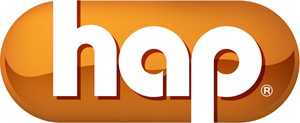Individual Shared Responsibility Provision of the ACA Mandate for Affordable Health Care
Under the Affordable Care Act, the federal government, state governments, insurers, employers and individuals are given shared responsibility to reform and improve the availability, quality and affordability of health insurance coverage in the United States. Starting in 2014, the individual shared responsibility provision calls for each individual to have minimum essential health coverage (known as minimum essential coverage) for each month, qualify for an exemption, or make a payment when filing his or her federal income tax return.
The provision applies to individuals of all ages, including children. The adult or married couple who can claim a child or another individual as a dependent for federal income tax purposes is responsible for making the payment if the dependent does not have coverage or an exemption.
The provision went into effect on Jan. 1, 2014. It applies to each month in the calendar year.
All U.S. citizens living in the United States are subject to the individual shared responsibility provision as are all permanent residents and all foreign nationals who are in the United States long enough during a calendar year to qualify as resident aliens for tax purposes. Foreign nationals who live in the United States for a short enough period that they do not become resident aliens for federal income tax purposes are not subject to the individual shared responsibility payment even though they may have to file a U.S. income tax return.
More Info
If you owe the penalty, it is assessed on your 2014 income tax form that’s due April 15, 2015.
To be eligible for premium tax credits, the employer-sponsored coverage must be “unaffordable” or fail to meet minimum value standards (i.e., considered “inadequate”). To be unaffordable, the cost of self-only coverage in the employer’s lowest cost plan must be more than 9.5 percent of the individual’s household income.
To fail to provide minimum value, the plan must have an actuarial value of less than 60 percent, meaning that the plan covers less than 60 percent of the total average costs for covered benefits. If the individual’s employer-sponsored coverage fails either test, the individual may be eligible for a premium tax credit for a plan purchased in a health insurance marketplace.
- Religious conscience. You are a member of a religious sect that is recognized as conscientiously opposed to accepting any insurance benefits. The Social Security Administration administers the process for recognizing these sects according to the criteria in the law.
- Health care sharing ministry. You are a member of a health care sharing ministry.
- Indian tribes. You are
- (1) a member of a federally recognized Indian tribe or
- (2) an individual eligible for services through an Indian care provider.
- Income below the income tax return filing requirement. Your income is below the minimum threshold for filing a tax return. The requirement to file a federal tax return depends on your filing status, age and types and amounts of income. To find out if you are required to file a federal tax return, use the IRS Interactive Tax Assistant (ITA).
- Short coverage gap. You went without coverage for less than three consecutive months during the year.
- Hardship. You have suffered a hardship that makes you unable to obtain coverage, as defined in final regulations issued by the Department of Health and Human Services.
- Affordability. You can’t afford coverage because the minimum amount you must pay for the premiums is more than eight percent of your household income.
- Incarceration. You are in a jail, prison, or similar penal institution or correctional facility after the disposition of charges against you.
- Not lawfully present. You are not a U.S. citizen, a U.S. national or an alien lawfully present in the U.S.
- Employer-sponsored coverage, including self-insured plans, COBRA coverage and retiree coverage
- Coverage purchased in the individual market, including a qualified health plan offered by the Health Insurance Marketplace
- Medicare Part A coverage and Medicare Advantage plans
- Most Medicaid coverage
- Children’s Health Insurance Program (CHIP) coverage
- Certain types of veterans health coverage administered by the Veterans Administration
- Most types of TRICARE coverage under chapter 55 of title 10 of the United States Code
- Coverage provided to Peace Corps volunteers
- Coverage under the Non-appropriated Fund Health Benefit Program
- Refugee Medical Assistance supported by the Administration for Children and Families
- Self-funded health coverage offered to students by universities for plan or policy years that begin on or before Dec. 31, 2014 (for later plan or policy years, sponsors of these programs may apply to HHS to be recognized as minimum essential coverage)
- State high risk pools for plan or policy years that begin on or before Dec. 31, 2014 (for later plan or policy years, sponsors of these program may apply to HHS to be recognized as minimum essential coverage)
- Other coverage recognized by the Secretary of HHS as minimum essential coverage
Minimum essential coverage does not include coverage providing only limited benefits, such as the following:
- Coverage consisting solely of excepted benefits, such as:
- Stand-alone vision care or dental care
- Workers’ compensation
- Accident or disability policies
- Medicaid providing only family planning services
- Medicaid providing only tuberculosis-related services
- Medicaid providing only coverage limited to treatment of emergency medical conditions
- Pregnancy-related Medicaid coverage
- Medicaid coverage for the medically needy
- Section 1115 Medicaid demonstration projects
- Space available TRICARE coverage provided under chapter 55 of title 10 of the United States Code for individuals who are not eligible for TRICARE coverage for health care services from private sector providers
- Line of duty TRICARE coverage provided under chapter 55 of title 10 of the United States Code



